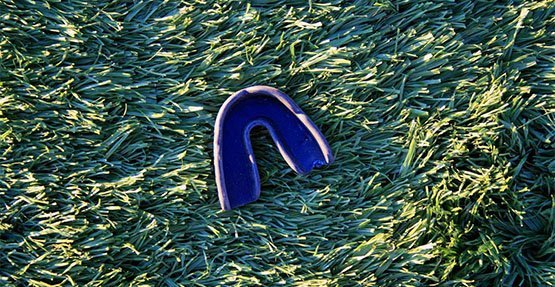Mouthguards and Splints

Mouthguards and Splints Belmont WA
Tooth enamel is the toughest substance in the body. Despite its durability, however, the surface of our teeth can still suffer damage.
Whether through accidents, sports activities, or grinding, our teeth are exposed to the possibility of accidents, and more often than we think.
The advantage of using mouthguards and splints is to make sure that you have durable, healthy protection even during sleep or play!
At Epsom Dental Care, we make custom-made mouthguards and splints to protect your smile at play and even during sleep.
Do you grind your teeth while sleeping?
Teeth grinding (also called bruxism) is the habit of clenching the upper teeth and lower back teeth tightly together, usually during sleep, which can result in teeth erosion and worse, breakage.
The constant force on the tissues, muscles, and other parts of the jaw causes headache, jaw pain, and more problems.
To reduce the stress in your jaw, your dentist may recommend jaw exercises.
However, for added protection, we also suggest wearing an occlusal splint while sleeping, to prevent grinding. The splint keeps the upper and lower teeth from making contact while you sleep.

Mouthguards: Protecting your Smile at Play
Mouthguards are dental appliances worn when playing contact sports to protect the teeth and the soft tissues in the mouth. This protective appliance receives the impact and cushions the blow in case of an accident.
Below are some of the accidents that can be significantly minimised by mouthguards.
Splints: Nightguards for Bruxism
Splints are useful for many dental purposes. Among these, the most common is stress management. When you are stressed, you tend to clench your cheek muscles and grind your teeth.
This places your jaw structures under heavy pressure, resulting in damaged teeth and jaw structures. To halt these effects, the dentist places a splint between your upper and lower teeth to prevent grinding.
Mouthguards and Splints in Belmont WA
Prevention is always better than cure.
At Epsom Dental Care, we provide preventive dental services that will help you maintain your oral health and prevent dental problems from happening, including custom-made mouthguards and splints.
Whether you need a mouthguard for the footy season or a splints for teeth grinding problems, our skilled dentists Belmont WA will provide you the best possible options for these removable appliances.
If you have any questions about our services, please contact us today at (08) 9478 2349.
We are located at 5/132 Epsom Ave in Belmont WA.
Frequently Asked Questions
Why do I need a mouthguard?
Who should wear mouthguards?
When should you wear a mouthguard?
Mouthguards help to absorb the shock received by a collision during athletic play, which can lead to serious injuries such as jaw or teeth trauma, concussion, and soft tissue lacerations.
How long will my mouthguard last?
For children, if they experience changes to their mouth while growing, the loss of baby teeth, or the eruption of the adult teeth, then their mouthguard may need to be changed

